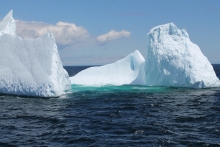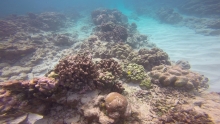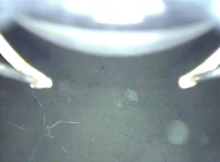- You are here:
- GT Home
- Sciences
- Home
- Related News
May 16, 2016
A new modeling study conducted by researchers in Georgia Tech shows that for decades, air pollution drifting from East Asia out over the world’s largest ocean has contributed to oxygen levels falling in tropical waters thousands of miles away.
April 25, 2016
Researchers have discovered the fate of much of the fresh water that pours into the surrounding oceans as the Greenland ice sheet melts every summer.
April 13, 2016
Researchers visited an atoll in the Pacific Ocean and found that 80 percent of coral reefs are dead.
April 13, 2016
Researchers visited an atoll in the Pacific Ocean and found that 80 percent of coral reefs are dead.
February 18, 2016
Small zooplankton snails don't paddle like most small water animals. They "fly" with wings.
February 5, 2016
Dr. Frank Stewart in the School of Biology was recently awarded a grant from the Georgia Improving Teacher Quality (ITQ) Grants Program to renew the Summer Workshop in Marine Science (SWiMS).
February 3, 2016
Frank Stewart has been awarded $571,000 to investigate how bacteria control interactions in methane and nitrogen cycles in the ocean.
April 2, 2015
A first-of-its-kind robotic vehicle recently dove to depths never before visited under Antarctica’s Ross Ice Shelf and brought back video of life on the seafloor.
January 7, 2015
Two of Tech’s top experts in the field to discuss the issue
August 22, 2014
Dr. Joel Kostka, a Professor jointly appointed in Biology and Earth & Atmospheric Sciences, was recently awarded $1.0 million in research grants by the U.S.










